This post may contain affiliate links. Please see my disclosure policy for more details.
If you’re thinking of travelling Australia on a backpacker budget, you may be worried about the high cost of living. This article will teach you how to find free or cheap accommodation in Australia.
Since Australia is so popular with backpackers, there are plenty of cheap accommodation choices for budget travellers. Although hostels are the obvious place to stay, there are SO many more options!
I’ve travelled to every state and territory in Australia and stayed in virtually every type of budget accommodation. While hostels are great for making friends, they don’t always exist in the smaller towns, and bunkbeds aren’t for everyone!
I’m sharing everything I’ve learnt about how to find cheap accommodation in Australia from my own experience, so that you can travel cheaply and make the most of your epic adventure! If you’d rather watch in video format, click the link to my YouTube channel below.
How to Find Free or Cheap Accommodation in Australia: Contents
If you want to know the cheapest form of accommodation in Australia, I’ve listed the options I’ve found in price order below. Click on any of the types to skip straight to that section.
- 1. House Sitting: free or paid
- 2. Couch Surfing: free
- 3. Bush Camping in National Parks: $0-$45
- 4. Camping & Caravan Parks: $45-$60
- 5. Hostels: $35-$65
- 6. Homestay: $35-$65
- 7. Airbnb: from $50
- 8. Cabins in Caravan Parks: $70-$150
- 9. Motels: from $90
- 10. Hotels: from $90
1. House Sitting
Cost: Free or paid
My personal favourite type of free accommodation in Australia is house sitting!
House sitting is when you stay in a local’s home for free while they’re on holiday. You’re able to use all of their amenities, such as Wi-Fi, TV and cooking facilities, in return for looking after their pets and keeping their home in good order.
The only cost is an annual membership fee to whichever pet-sitting site you join, which is usually less than the cost of one or two nights in a hotel.
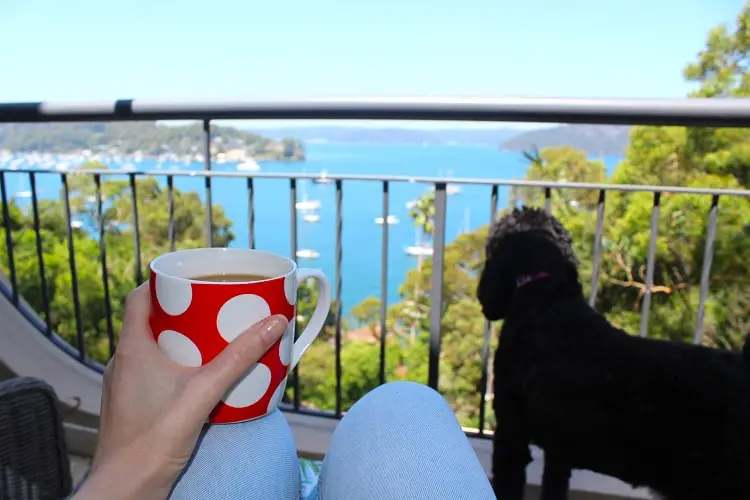
I started house sitting in 2015 when I was travelling Australia and continued doing it in Sydney when I settled there. I’m still doing it now, and don’t need to pay rent!
I’ve looked after hundreds of amazing pets and stayed in so many beautiful homes that would cost thousands of dollars per night to hire. I’ve stayed in three-storey mansions overlooking the ocean, quirky old houses right on Sydney Harbour and had steam rooms, saunas and plenty of private, heated swimming pools!
House sitting has saved me over $70k in rent since 2015 and allows me to mostly live in luxury properties in some of Sydney’s most expensive suburbs!
I now run a professional pet sitting business through MadPaws and charge owners a fee for overnight sits, as well as daytime home visits and dog walks. The business has made over six figures so far!
Best House Sitting Websites in Australia
If you’re wondering how to find free accommodation in Australia by house sitting, here are links to my recommended sites.
Trusted Housesitters: This long-running, popular site has house sits available in over 130 countries, so it’s fantastic for travellers. It offers much better perks than most other house sitting sites, such as house sit-cancellation compensation, free 24/7 vet calls and airport lounge passes. Click here to get 20% off your Trusted Housesitters annual membership (no code required)!
Aussie House Sitters: This site is for house sitting in Australia only, and I booked multiple house-sitting jobs through them straight away in Perth, Adelaide and Melbourne. The site is very easy to use and up to 100 new house sit adverts are placed each week. They don’t offer the same level of perks as Trusted Housesitters, but their annual membership is a little cheaper. Click here to join Aussie House Sitters.
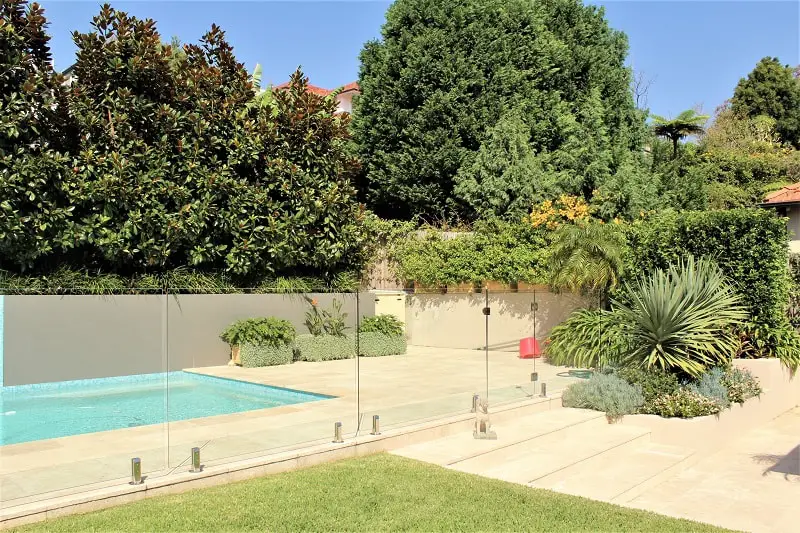
To find out more about house sitting, read through my ultimate guide to house sitting. or sign up to my free house sitting email course.
2. Couchsurfing
Cost: Free
Another great type of free accommodation in Australia is couch surfing.
Couch surfing is when a local resident hosts travellers in their home for free, letting them either sleep on a couch or in a spare room. The traveller and host get to learn about each other’s culture, practise another language and make friends.
The accommodation site Couchsurfing.com connects travellers with both local hosts and each other via events all over the world.
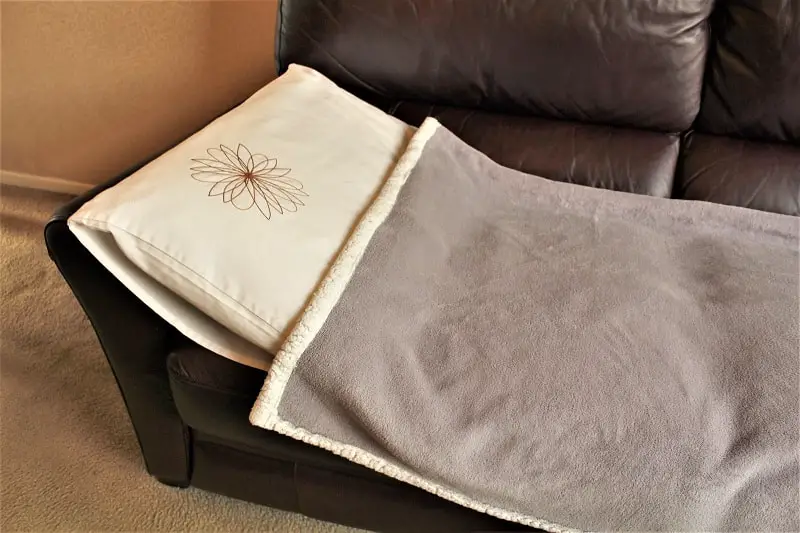
3. Bush Camping & National Park Camping
Cost: $0-$45 per tent or campervan
If you’re looking for places to stay in Australia during a road trip, bush camping is an excellent option. It’s a popular type of low budget accommodation in Australia for long-term travellers.
Bush camps in Australia are usually in scenic locations, such as national parks or forests. Amenities include compost toilets and sometimes showers and power sockets. It’s wise to bring your own drinking water and camping stove.
Some bush camps in Australia are free to stay at, but others cost up to $45 per tent or van, particularly if they’re run by a government national park service. You may need a national park pass too.
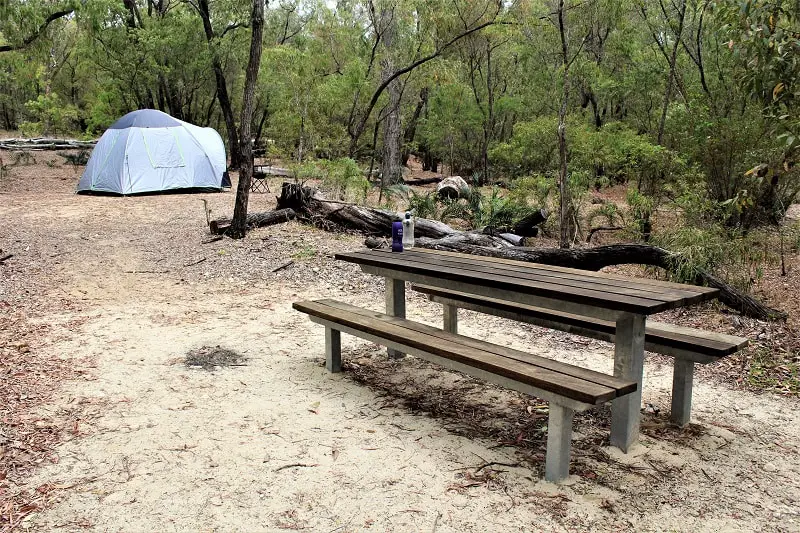
You usually pay for a site at a bush camp via an honesty system (a donation box on the site) or by booking online. The campgrounds are not usually manned by staff, just visited for maintenance.
Bush camps are one of the best cheap ways to travel Australia, particularly when their locations are so stunning. You can buy cars and campervans from other backpackers with all the camping equipment included too.
Here are the links to find and book national park campsites in each Australian state and territory.
- NSW National Parks and Wildlife Service
- Parks Victoria
- Department of Parks and Wildlife WA
- Queensland Government Department of National Parks, Sport and Racing
- Northern Territory Government
- National Parks South Australia
- ACT Government
- Parks and Wildlife Services Tasmania
4. Camping & Caravan Parks
Cost: $45-$60 per tent or campervan
Holiday parks are really popular in Australia, and they’re honestly not full of chavs like the Caravan Club in The Inbetweeners! You’re more likely to be neighbouring with other backpackers and wealthy Australian pensioners (“silver nomads”) travelling in swanky renovated buses.
You’ll find caravan parks mostly on the outskirts of Australian cities, as well as along the coastline. You can usually either pitch a tent or stay in your campervan or caravan.
The price is nearly always per tent or van, not per person, so if you’re travelling solo they’re not actually that cheap. But if two of you are travelling together, holiday parks are much more affordable than hostels.
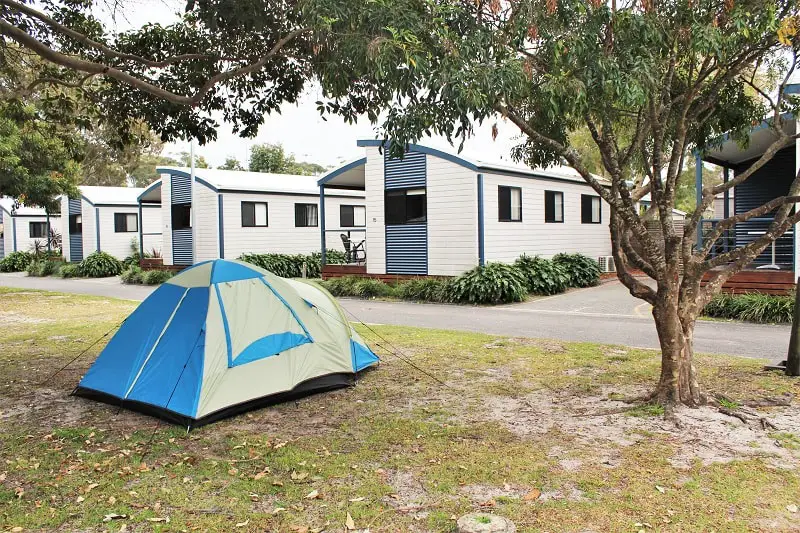
The large chains like Big4 Holiday Parks and Discovery Holiday Parks (similar to Haven in the UK) usually charge the most, but have excellent facilities like swimming pools, games rooms and even outdoor cinemas! Great if you’re travelling with children.
Most caravan parks in Australia have power sockets, toilets, hot showers and fully equipped kitchens. They’re great to alternate with bush camping during your road trip so you can shower and recharge your electrical items.
They’re also a bit more manicured and in less rural areas so they have less insects! Free Wi-Fi is unfortunately not standard so you may need to visit a local café or library if you have a lot of stuff to do online.
There’s also a great Australian website I’ve just discovered called youcamp.com, which works like Airbnb but for land on people’s private properties. There’s everything from basic camping to luxury glamping. Wish I’d known about that on my road trip!
5. Hostels
Cost: $35-$65 per person
Hostels are the most popular type of backpacker accommodation in Australia. They’re usually clean, safe, warm and well equipped with facilities like kitchens, free Wi-Fi, TV rooms and proper bathrooms. They’re also great for socialising.
Hostels in Australia tend to start at $35 for a bunk bed in a dorm room, but can vary depending on the season, size of the dorm and how nice the hostel is.
To learn more about hostels and find out my recommendations, read through my list of 26 best hostels in Australia.
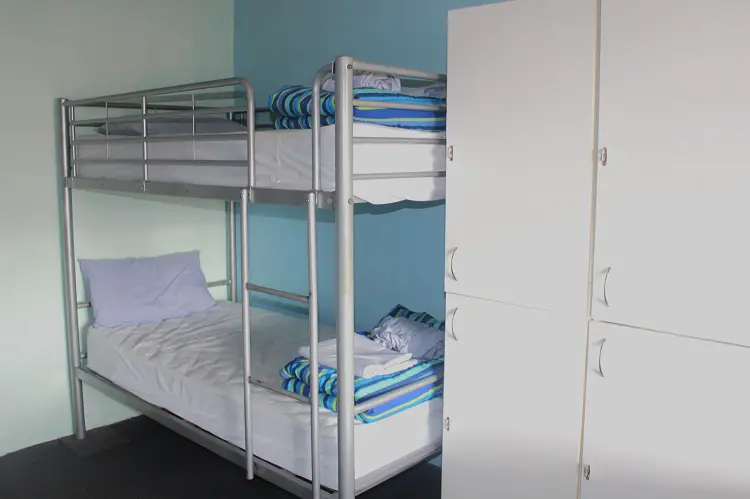
6. Homestay
Cost: $35-$65 per room
I had no idea what a homestay was until I arrived in Melbourne in the middle of summer without booking anywhere to stay in advance. I ended up sitting in McDonalds at 11PM doing desperate accommodation search (not my best memory)!
Homestays are traditionally when overseas students studying English stay with a local family in Australia to practise speaking English.
The accommodation site homestay.com allows tourists to book homestays as well as students.
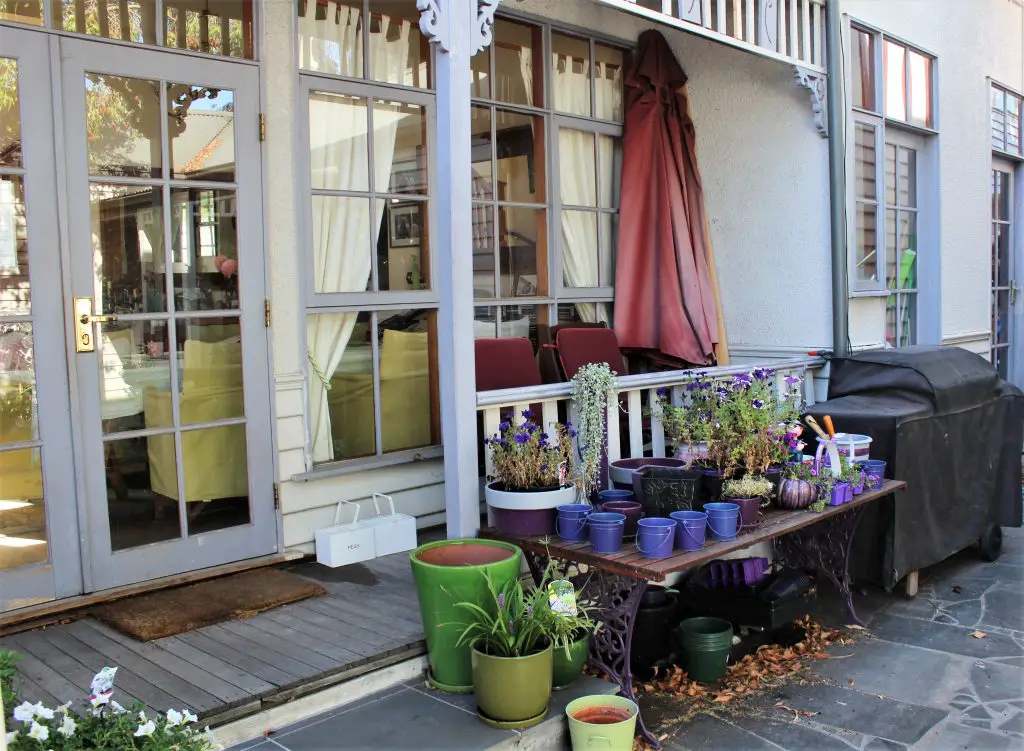
Melbourne was so booked up the weekend I stayed that the home owner kept receiving desperate calls from the airport trying to accommodate all the people stranded there with nowhere to stay!
I paid %40 per night, but you can get double rooms for as little as $30 -sometimes. That’s half the price of an Airbnb or hostel dorm if there are two of you! You might even get a free laundry service and breakfast too!
7. Airbnb
Cost: From $50 per room
If you’re travelling as a couple or don’t mind sharing a double with a friend, Airbnb can actually work out the same price or less than a dorm bed in a hostel. Prices for a spare room in an Airbnb where the owner is living there start at around $50 per night in Australia.
Airbnb isn’t ideal if you want to meet lots of people, but you get more privacy than in a hostel. There are less people using the kitchen and bathroom too, and they’re usually a better standard.
Airbnb is one of my personal favourite ways to save money on accommodation in Australia, Particularly now I’m getting a bit too old for hostel dorms!
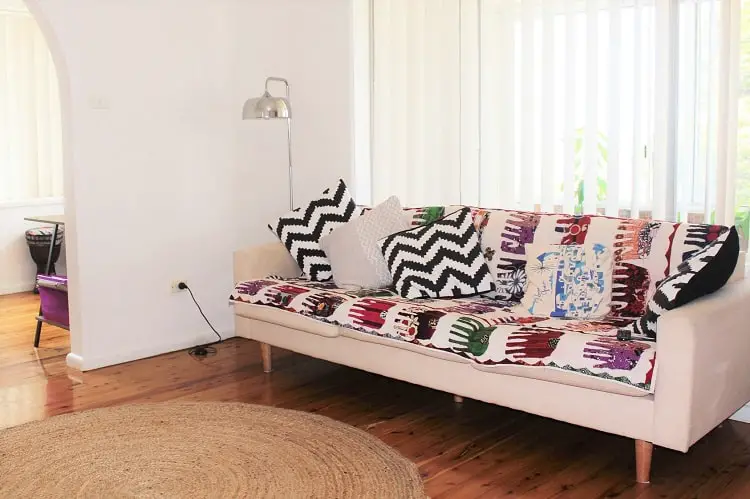
8. Cabins in Caravan Parks
Cost: $70-$150 per Cabin
Most caravan parks in Australia have cabins or villas for hire; they’re a bit like the static park homes you get in the UK.
I stayed in a cabin during my Melbourne to Sydney road trip, since not everywhere had hostels and it was way too cold to camp during the winter (2 degrees some nights).
Off-peak prices start at around $70 per cabin at some Australian holiday parks, but they go up a lot in the summer.
You can get larger cabins too so this could be a really cheap option for a group of 3-5. The cheaper ones can be pretty basic but you get a kitchenette, bathroom, heating and tv. Better than a tent anyway!
Just Google “caravan park” and whichever town you’ll be staying in. Websites for local tourist boards or visitors’ centres tend to list them, and sometimes they come up on hotel comparison sites too.
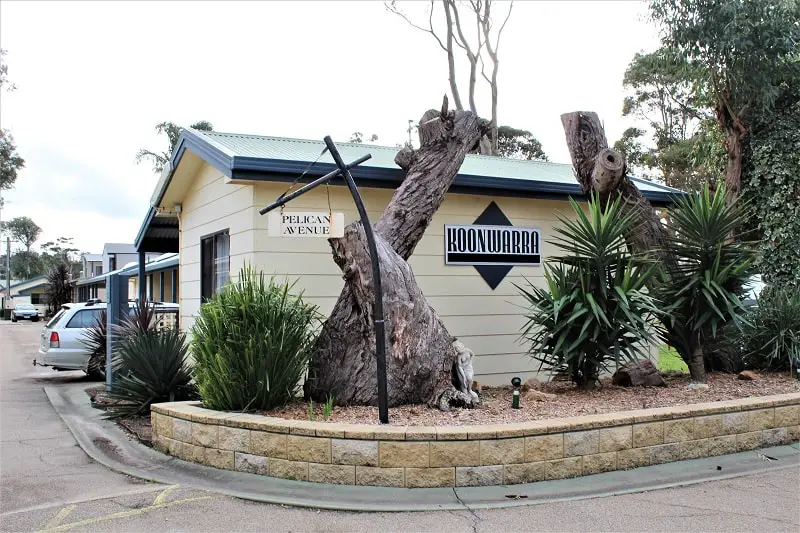
9. Motels
Cost: from $90 per Room
Motels always excite me, as they don’t have them in the UK, and they remind me of American films where people are on the run! They’re pretty common in Australia.
Motels rooms start at around $90 per night in Australia. They don’t usually have a kitchen, but some of them have swimming pools. You can usually park your car right by your door, which is a big advantage if you have a lot of luggage.
>> Click here to find budget motels Australia on HotelsCombined.
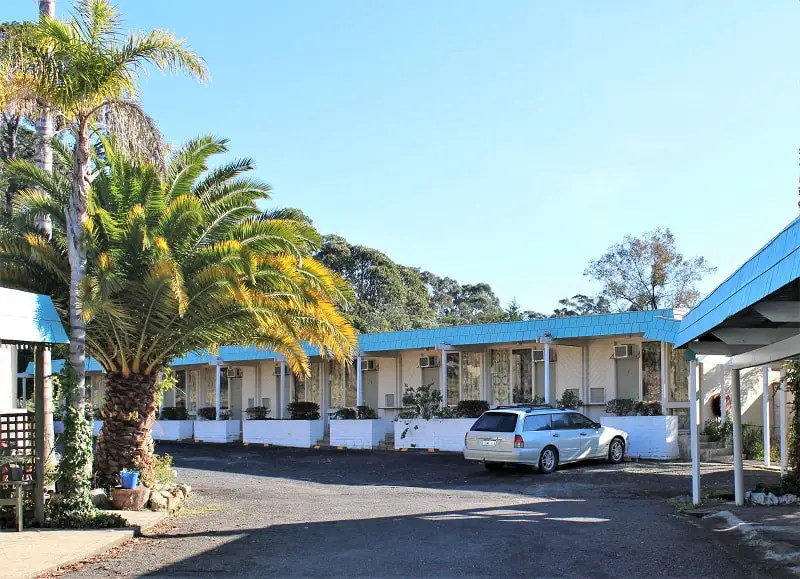
10. Cheap Hotels in Australia
Cost: From $90 per Room
Hotels are usually one of the most expensive accommodation options, but you can sometimes get budget hotels in Australia starting as low as $90.
The best way to find cheap hotels in Australia is to use HotelsCombined. They compare prices across all major booking sites to make sure you get the cheapest price.
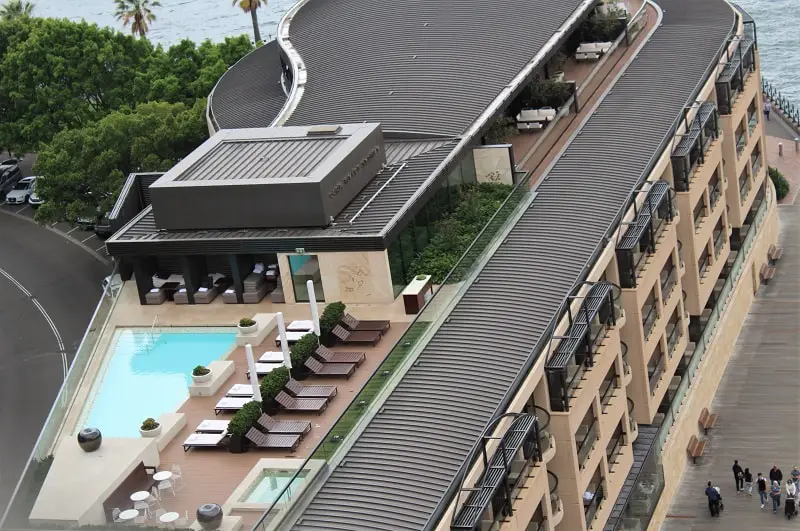
Whatever your budget, you should find a type of Australia accommodation to suit your needs. Hopefully this blog post will open up some options you’ve never thought of before!
My favourite type of free accommodation in Australia is house sitting, as the properties are so much more spacious and private than a hotel. Remember to use this link to get 20% off a Trusted Housesitters annual membership.
Do book accommodation in advance, particularly in peak season. The last thing you want on your trip is to be trawling the streets for hours carrying your backpack or sleeping in the car. I’ve done both of those things; it wasn’t pleasant!
If you’re visiting Australia on a working holiday, make sure you read through my guide on planning your working holiday in Australia. Enjoy your trip!
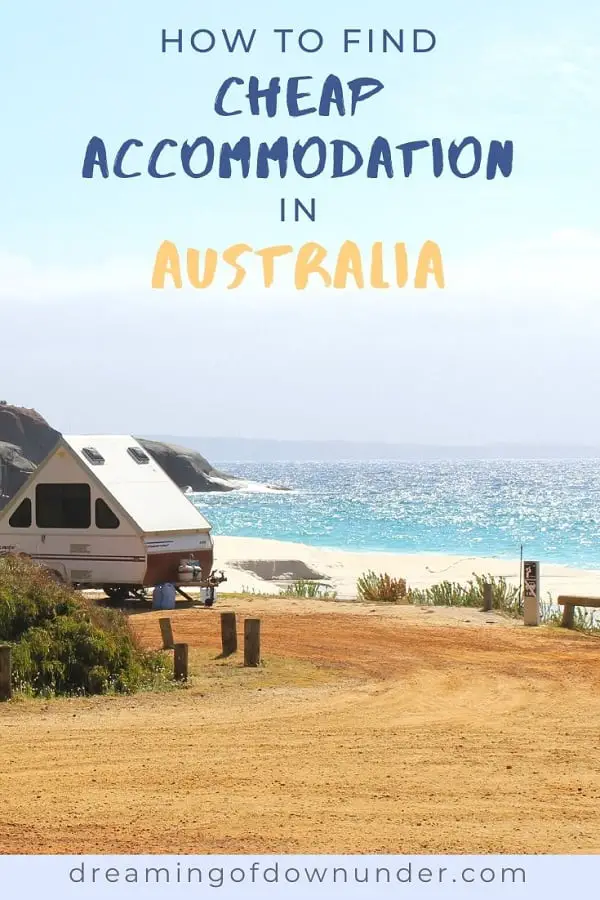
Lisa Bull, founder of Dreaming of Down Under, has been living in Australia as a British expat since 2015. After travelling to every state and territory in Australia and living in Perth, Brisbane and Sydney, Lisa knows from first-hand experience the best destinations to visit in Australia and the best budget travel tips. Her guides on this blog have been read by over 700k readers and helped thousands of people achieve their dream of living in or travelling Australia.
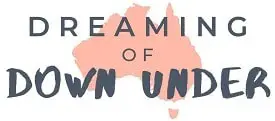
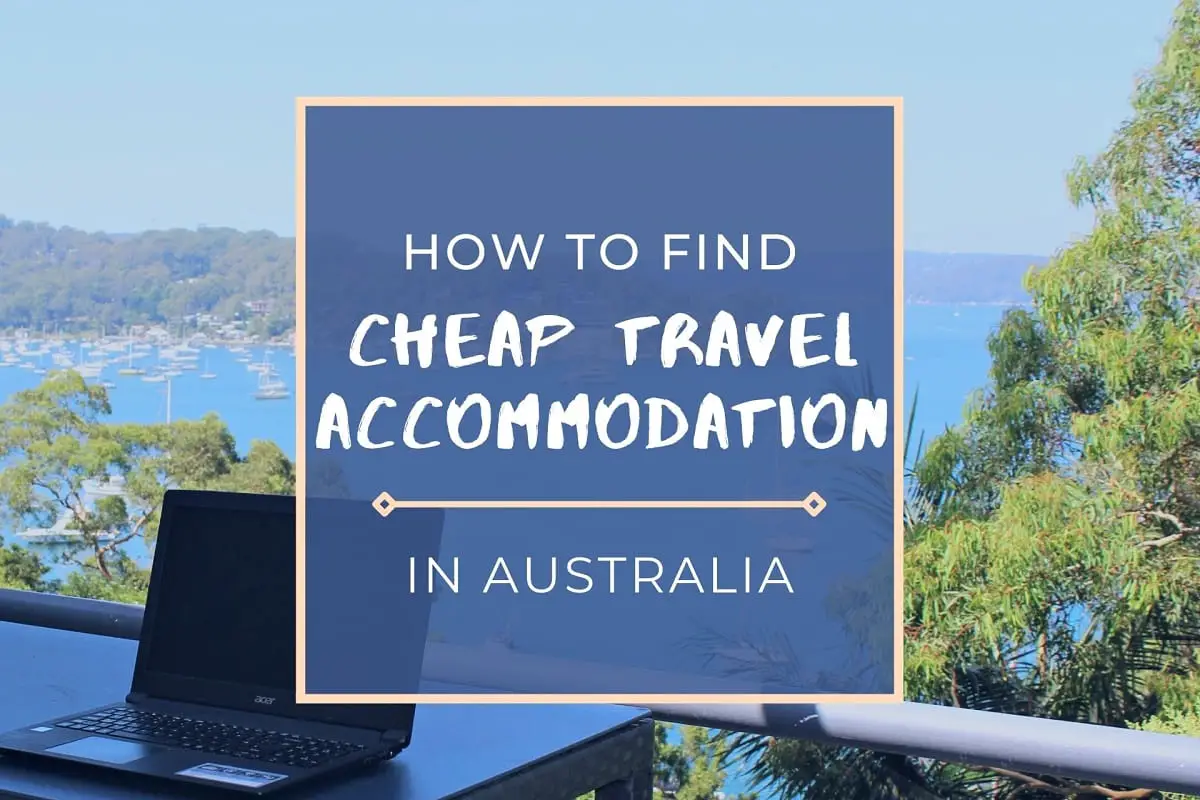
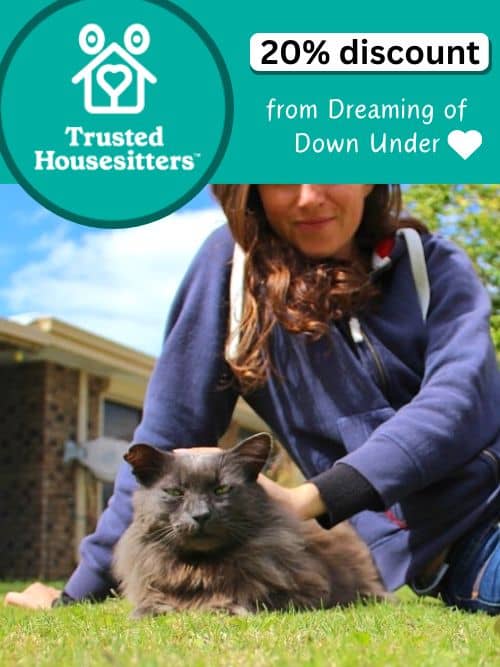
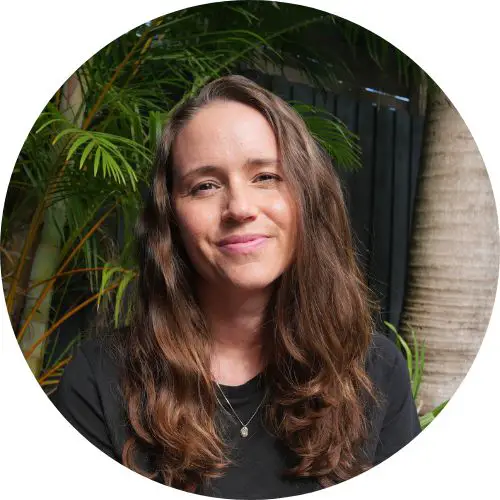
Interested to see what’s around for cheap accommodaywhen travelling around Australia
Glad you found it useful!
Awesome post! It’s really helpful to see good accommodations and cheap hotels in Perth that we can comfy stay and enjoy everything that this beautiful city has. Thank you for sharing it!